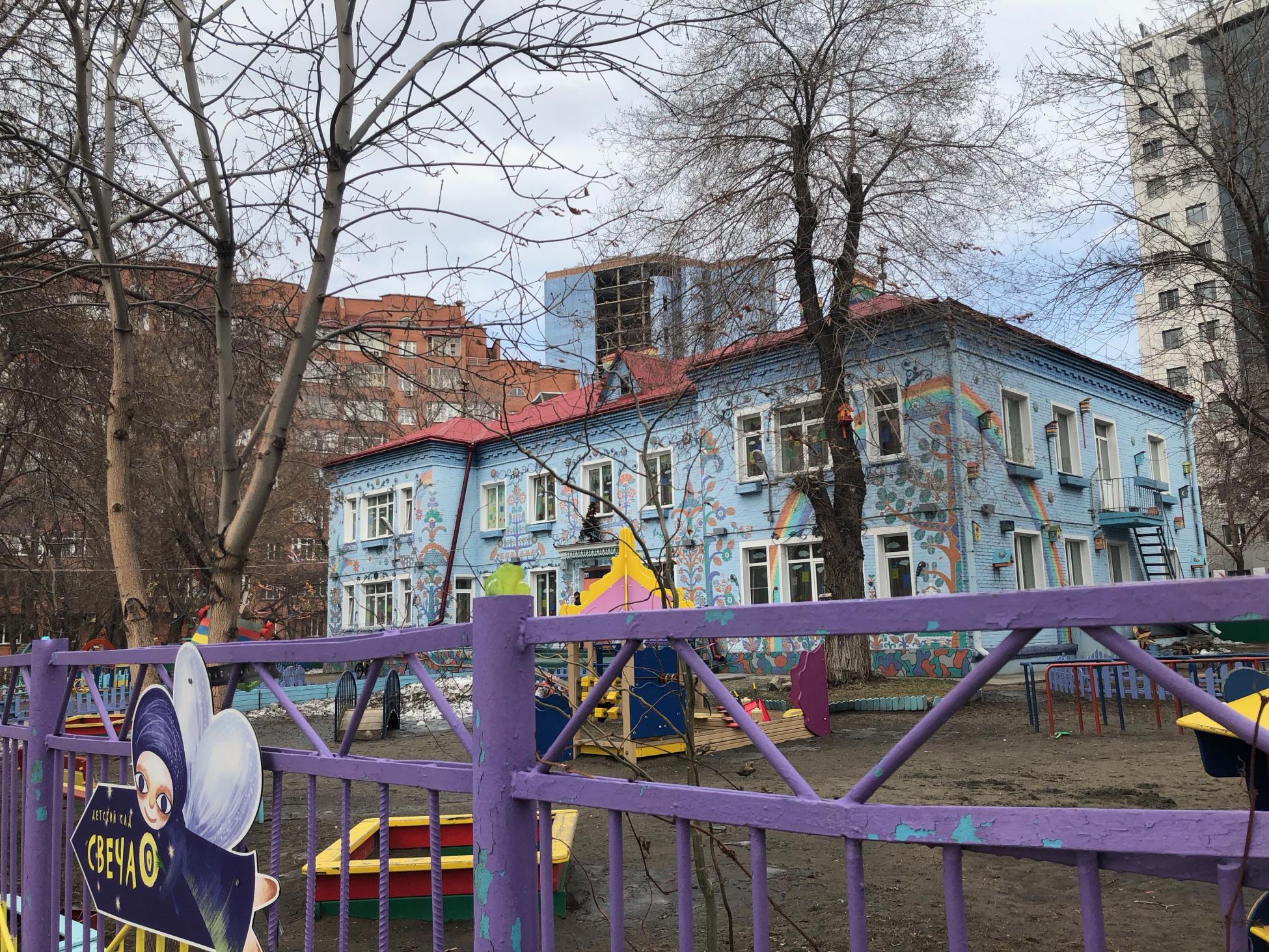This is my first full-time job and being a teacher is no joke. Prior to this, I worked with elementary school students as a tutor and activity leader. So, while before I could dump a handful of crayons and a bucket of sand on the table and have the kids go at it, now I meticulously plan and lead activities, lectures and assessments. (Also, high school students in Russia go to school six days a week, which means so do I.)
I think it’s unique and specific to ESL teaching abroad that I have the pleasure and challenge of working will all ages, so I will break down my teaching experiences by age group.
The Cute Ones: Ages 4 to 6
Just like American tots, Russian kids aged four to six run up to you and quickly ramble in gibberish—but this time it’s in a Russian accent, which is even cuter!
These bundles of energy and germs love to climb all over me like I’m an unstable jungle gym and sneeze in my face. Therefore, teaching is certainly a difficulty. On the plus, they take a very long time to do activities and absorb information, so much of the lesson is composed of games, repetition and crafts.
The school’s cleaning woman has come to identify my cringe face, meaning a small child is yelling in Russian.
On the negative, being around an adult who doesn’t understand you when you speak to her in Russian is very stressful for a few children, which leads to tears or tantrums. The school’s cleaning woman has come to identify my cringe face, meaning a small child is yelling in Russian.
The Silly Ones: Ages 7 to 9
The next age group has the benefit of further control over their emotions and bowels. However, their English skills and motivations are similarly limited or nonexistent. Best of all: when they do likes a particular game or lesson, their enthusiasm and energy is unmatched.
The Angsty Ones: Ages 10 to 13
Going through puberty is difficult. Learning English is difficult. I have the joy of and patience for witnessing these students experience both simultaneously.
Also, when did middle schoolers start getting smart phones? (When I was in middle school, the most we did to entertain ourselves was try to use our calculators to spell dirty words; and that’s the way it should be.) Still, despite my crusade against smart phones in the classroom, these students are able to have discussions and express opinions in English. I love hearing them speak casually and effortlessly in English, even if it’s not perfect.
The Not-Quiet-Adult Ones: Ages 14 to 18
Seriously, I am regularly impressed by the intelligence and drive of students at this level. They want to be challenged. By this age, they are mature enough to form their own opinions on the values of their education. Of course, some students don’t care. But some students recognize the sacrifice parents make to give their children an ESL education and the importance and ubiquity of English for their professional and personal futures.
At this level, they are harder to impress, but I try my best and have learned a lot from the other Russian teachers. I try to include references that they will appreciate, which means I’ve had to dig a bit into Russian youth pop culture. Some of it overlaps with American pop culture (proof that Cardi B is taking over the world), but many Russian or Eastern European favourites tend to be edgier and reminiscent of peak '90s punk rock culture.
Despite, teaching six days per week, I don’t feel like a teacher. Every day presents me with an unexpected challenge, but not the kind that gives me a jolt of eager expectation. I try to hide it from my students and colleagues, but I am often highly aware of the fact that I am only a few years older than many of my students—and definitely shorter.
My students believe that life is made up of logical stepping stones and they are all excited about becoming adults. I like hearing them muse about their futures and I wish that I could as well. Rather than stepping stones, my life thus far is more like a boulder being hurled off a cliff and then a family of rats has to build a shelter out of the broken pieces. The other American ESL teachers here have travelled and continue to travel around teaching. As much as I enjoy this life, the icy, frozen ground makes me yearn for fresh dirt to plant roots in.
Add this article to your reading list




